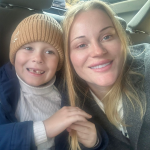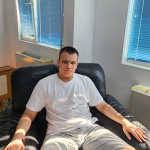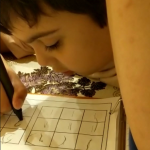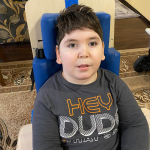Work for Autistic Teens
An important step in the transition of high school students into adulthood is partial employment. However, many parents doubt whether their children will be hired. It must be acknowledged that everything largely depends on the abilities of teenagers with autism spectrum disorders. With proper training and planning, they can indeed succeed.
The Role of Parents in Preparing Autistic Teens for Work
It’s hard to overstate the role of parents in preparing autistic individuals for work. Often, adults fail to put enough effort into helping their children, preferring to shift responsibility onto others.
- Discussing Interests: First and foremost, it is necessary to find time to discuss the children’s interests. Although this depends on the child’s level of functioning, the discussion should likely take place during adolescence.
- Career Exploration: Just like all other children, autistic teens try to understand what they want to be when they grow up. But this is not always clear to them or their parents. Therefore, it is essential to provide clear answers to questions about their future.
- Individual Uniqueness: When preparing for the transition to adulthood, it is important to remember that each autistic teen is unique.
- Skills Development: Autistic individuals need both professional and social skills, which may require time and effort to master. The focus should primarily be on developing practical skills relevant to work, which should be addressed by both educational centers and parents.
- Communication Skills: It might be beneficial to prioritize teaching communication skills that help build healthy relationships with peers and make friends, which is good for self-esteem. Skills for interviews, decision-making, and relationship management are also necessary for their overall development and application in the workplace.
Parental Involvement is Crucial
- Parents are involved in every stage of this process, so they have a clear understanding of what their children can do and what they should not be tasked with.
- Observing their child not only gives parents insight into what their child does well but also helps reinforce positive relationships between them.
- Engaging in activities with teens that help develop their skills is key.
- It is important to help them understand the essence of set goals, making it much easier to figure out what kind of work they want to pursue.
- Since social interactions are a complex challenge for autistic teens, participating in interest-based groups can help. This will make it easier for them to communicate with others, as they will have a shared topic of conversation.
The Complexity of Skill Development and How Cell Therapy Can Help
Clearly, developing a wide range of skills is both challenging and requires a comprehensive approach. A way to simplify this task is by addressing the underlying issues that complicate not only job preparation but life in general for autistic individuals. One solution could be undergoing cell therapy, which can help eliminate the root cause of difficulties—autism spectrum disorder and its symptoms.
This innovative and safe correction method involves the transplantation of stem cells, which replace damaged ones. This treatment leads to the normalization of brain and nervous system activity, resulting in long-term or even permanent elimination of autism symptoms or a significant reduction in their severity. As a result, other therapeutic measures become far more effective.
The high success rate of cell therapy has already been proven, and in the future, it could become the primary method for combating autism. It has been highly regarded worldwide and is used by leading clinics, including the Mardaleishvili Medical Center. The center employs top specialists using the latest equipment, which, according to accumulated successful experience, ensures the most positive therapeutic outcomes. Another advantage of the center is the affordability of its services compared to other countries, as well as the assistance provided starting from the trip planning stage and accommodation arrangements.
Cell Therapy — A Careful Investment in the Teen’s Future!
Autism Treatment Center Videos
Autism treatment with own stem cells
Cord blood association congress
International Quality Crown
Autism Treatment Reviews
Autism treatment with own stem cells
The story of Alessandro (6 years old)
Autism Patient Testimonial - Stem Cell Treatment
Clients Testimonials

Feedback from Igor, David’s father (12 years old) Read More

Feedback from Olga, Fedya’s mother Read More

Feedback from Natalia, Radomir’s mother (15 years old) Read More

Feedback from Esther, Samuel’s mother (8 years old) Read More

Feedback from Abibe, Selim’s mother (7 years old) Read More












